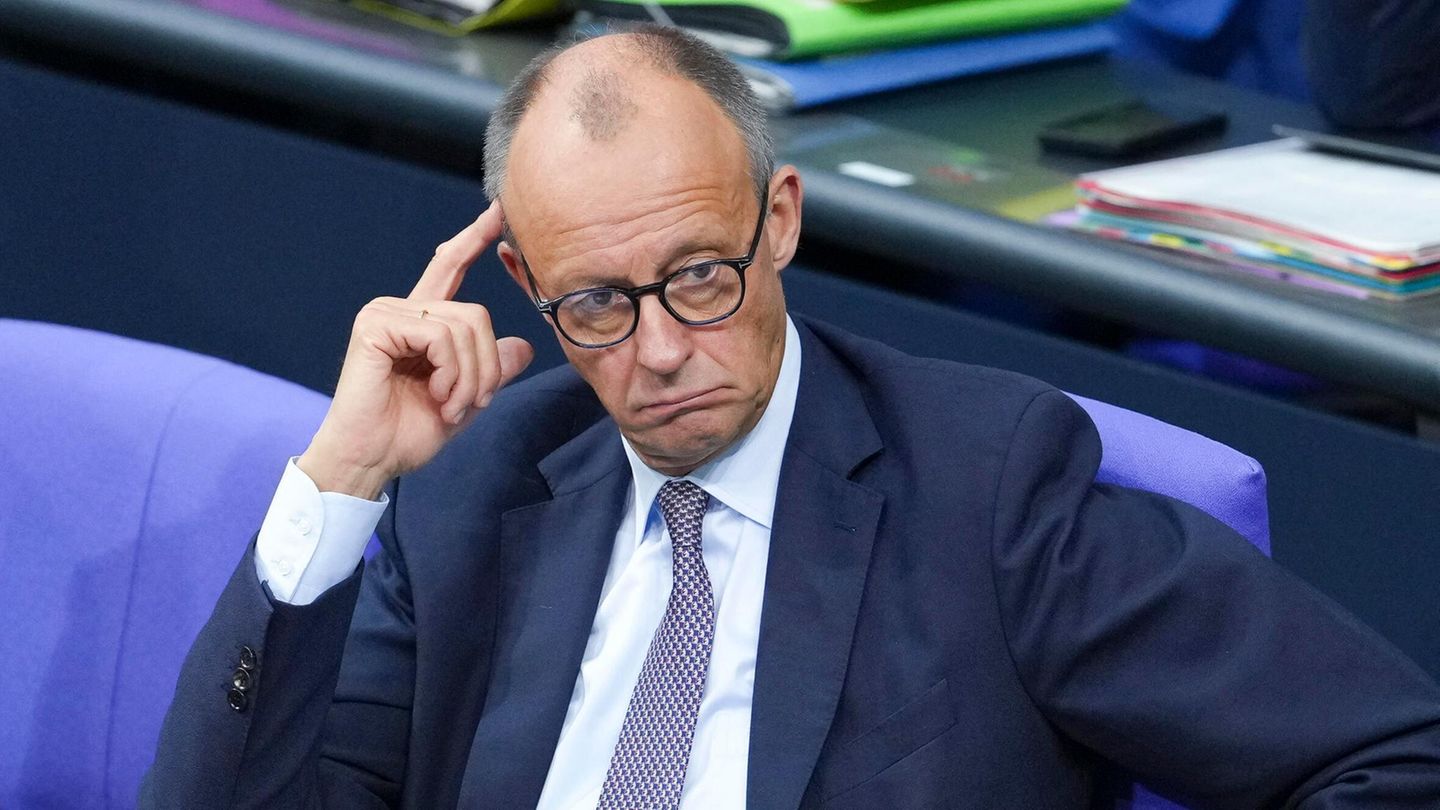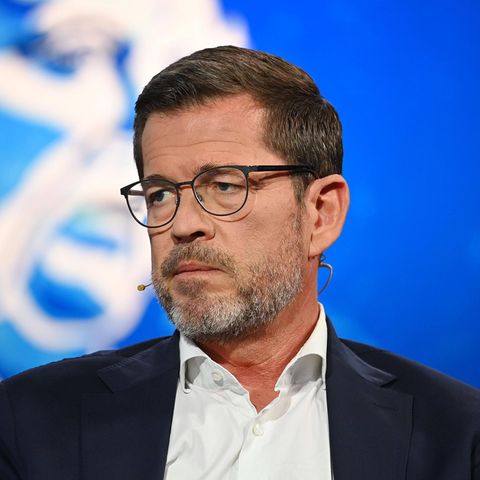Question about firewall
AfD debate divides Union – Merz relies on hard demarcation
Copy the current link
Add to wishlist
The AfD is becoming stronger, the CDU is becoming less secure. Calls for a change of course are now becoming louder in the Union. But Chancellor Merz wants to stick with the firewall.
Chancellor and CDU leader Friedrich Merz wants to focus next year’s election campaigns on a confrontation with the AfD and stick to a clear demarcation line. Before a strategy meeting of the CDU presidium in Berlin, he countered demands from his party to weaken the AfD’s firewall. There is no cooperation with a party that questions everything that has made Germany strong in the past decades – “at least not under me as the party leader of Germany’s CDU,” he said during an appearance in his constituency in the Sauerland.
The CDU leadership met in Berlin on Sunday for two days of discussions on the strategy for the five state elections next year, with particular attention to the course towards the AfD. Merz had declared the AfD the “main opponent” in the coming election campaigns after individual CDU politicians had previously shaken the firewall in the past few days. The SPD declared the Union’s dealings with the AfD at the weekend a coalition question. On Monday, Merz and CDU General Secretary Carsten Linnemann want to inform about the results of their strategy consultations at a press conference.
AfD has caught up with CDU
The starting point for this is bleak. In the nationwide surveys, the AfD now has 25 to 27 percent and has caught up with the CDU/CSU. In Saxony-Anhalt and Mecklenburg-Western Pomerania, where new state parliaments will be elected next year, the AfD is already by far the strongest party with scores of around 40 percent in the surveys. All attempts to stop the party’s rise through exclusion have failed.
When Merz ran for party leadership for the first time in 2018, he wrote on the online portal Twitter, now X: “We can achieve up to 40% again and cut the AfD in half. That’s possible!” At that time, the AfD had just returned to the Bundestag and was polling at around 14 percent. The development of the past seven years is the opposite of the current Chancellor’s objectives at the time. The AfD’s numbers have almost doubled.
Before the CDU strategy meeting, Merz made it clear that with him as party leader there would be no fundamental change of course. “There is nothing in common between the CDU and the AfD,” he emphasized during an appearance in Meschede, Sauerland. The AfD stands against the European Union, against the European Monetary Union, against NATO, against compulsory military service. “It goes against everything that has made the Federal Republic of Germany great and strong over the last eight decades.”
The Chancellor’s stance corresponds to a party conference resolution from 2018. “The CDU of Germany rejects coalitions and similar forms of cooperation with both the Left Party and the Alternative for Germany,” it says.
However, the wording “similar forms of cooperation” leaves room for maneuver. If the AfD approves the Union’s motions in the Bundestag, this will not apply to Merz. He made this clear in an interview with the Frankfurter Allgemeine Sonntagszeitung: “If we think something is right, we must not make ourselves dependent on the AfD.” This is how Merz handled things in the election campaign as opposition leader, when a migration decision was only made with the votes of the AfD.
Merz for substantive discussion instead of a ban
Merz wants to concentrate the election campaigns next year on the confrontation with the AfD as the main opponent. They would “probably just be about the question: them or us,” he says.
The Chancellor is committed to providing the AfD with content. “Above all, we have to make a good offer to voters in Germany so that they don’t even think about voting for this party again in the next election.”
Merz thinks little of the ban proceedings before the Federal Constitutional Court that the SPD is seeking. The legal hurdles for this are too high, he says. “I have little sympathy for working with such an instrument.”
Despite all the assurances, the debate about how to deal with the AfD continues to flare up. Before the presidential retreat, three formerly influential Unionists pushed it again: ex-CDU general secretary Peter Tauber, former defense minister Karl-Theodor zu Guttenberg (CSU) and the former chairman of the CDU basic values commission, Andreas Rödder.
“Disenchantment cannot be achieved through boycotts,” said former CSU general secretary Guttenberg star. Tauber also complained that “pure stigmatization” would not lead to the AfD disappearing. Several East German CDU politicians agreed with this assessment of the elders in public statements.
The Mainz historian Rödder has long seen the CDU in a “political vicious circle”. The firewall has forced the Union to form a coalition with left-wing parties and make concessions to them, he says. As a result, she loses support, which strengthens the AfD. He therefore sees the question of how to deal with the AfD as a question of the existence of the Union.
Klingbeil: “This must be stopped urgently”
SPD chairman Lars Klingbeil called on the CDU leadership at the weekend to take an offensive stance against such voices from within their own ranks. “I expect everyone in the Union who bears responsibility to make it very clear: there is no form of cooperation with the AfD, neither in the federal government nor in the states,” said the Vice Chancellor to “Bild am Sonntag”. “This determination was a condition of entry into the federal government for us.”
Klingbeil said he had no doubts that Chancellor Merz would reject any future cooperation with the AfD. “But of course I realize that there are others in the CDU who are trying to weaken this clear demarcation. This must urgently be stopped.”
DPA
yeah
Source: Stern
I have been working in the news industry for over 6 years, first as a reporter and now as an editor. I have covered politics extensively, and my work has appeared in major newspapers and online news outlets around the world. In addition to my writing, I also contribute regularly to 24 Hours World.






